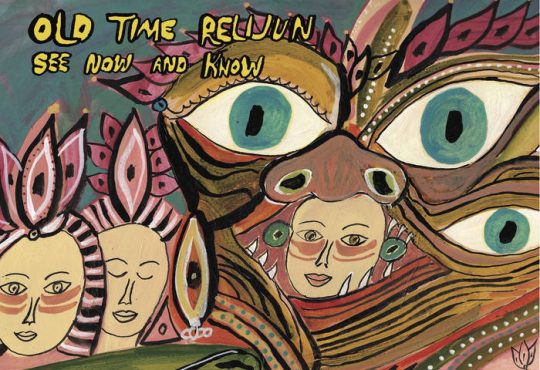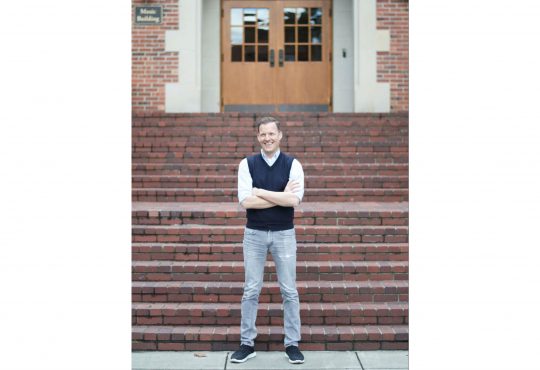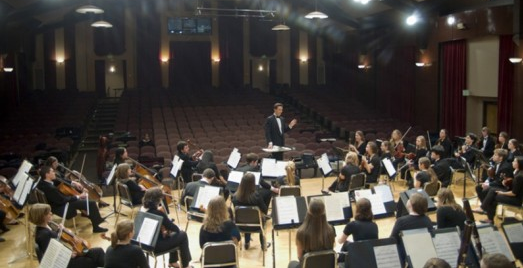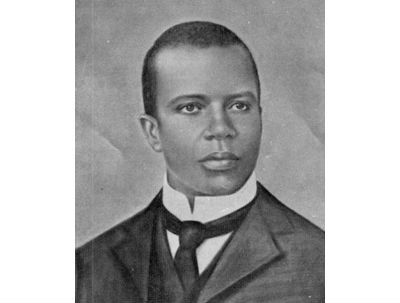By SABINE GLOCKER
The time for another fantastic University of Puget Sound Symphony Orchestra concert is now. Inspired by the year 2013 and titled Lucky 13, the concert is filled with pieces by composers born in 1813 and 1913.
The concert will consist of four pieces.
Starting off the concert will be “Little Suite for Orchestra” by Witold Lutoslawski. A Polish composer and conductor, he was born on Jan. 25, 1913. This piece was composed in 1950.
“It starts off with a light piccolo solo which then jumps into a powerful section full of all the instruments in the orchestra,” Jenna Tatiyatrairong, a sophomore clarinet performance major, said.
The piece continually switches back and forth between piccolo, flute, and clarinet solos, with the occasional light trumpet part and powerful and intense parts with the whole orchestra. The composition uses extremely gradual crescendos and immediate jumps in volume and tempo which keep the listener entertained and entranced.
The second piece will be “Simple Symphony for Strings,” by Benjamin Britten. Born Nov. 22, 1913, he was a British composer and conductor. Composed in late 1933 and early 1934, the piece is solely for string instruments.
“This piece is a lot different from the Lutoslawski,” Gavin Tranter, a sophomore trumpet performance major, said. “It’s a lot more consistent in its tempo and it has a lot more gradual crescendos. There are some slight variations in speed, but it’s not quite as jumpy as the first song. Sometimes it gets pretty slow, but it doesn’t just jump from fast to slow all of a sudden.”
“It’s a really pretty piece; I wish I could play in it,” Tatiyatrairong said.
The second half of the performance will consist of two composers born in 1813.
The first is Richard Wagner, a German composer, conductor and theater director. Particularly famous for his operas, the piece the symphony will be playing is “Good Friday Spell” from his opera Parsifal, written in 1882 shortly before his death in 1883. It begins with the powerful sound of the trumpets with strings accompanying them.
“The piece is very emotional in nature with a soft sound frequently. But it’s also very dramatic sometimes. The song kind of tells a story,” Tranter said.
“The opera itself is loosely based on an epic poem about someone’s quest for the Holy Grail and in the song you can kind of tell the good times of his journey from the bad times,” Tatiyatrairong said.
The final piece of the performance is “Triumphal March” from Aïda by Giuseppe Verdi, an Italian composer also known for his operas. He was born on Oct. 10, 1813. The opera Aïda follows the story of an Ethiopian princess who has been captured by the Egyptians and enslaved.
“Like a lot of marches, this piece is really trumpet-heavy,” Tranter said.
“It’s also, well…triumphant. It’s named really appropriately. It has a lot of staccatos too, which just means the notes are really deliberate and hard, not soft or anything. They’re short and sweet; I guess that’s a good way to put it,” Tatiyatrairong said.
The concert will take place tonight, Friday, Nov. 15, at 7:30 p.m. in Schneebeck Concert Hall. Tickets are free.






